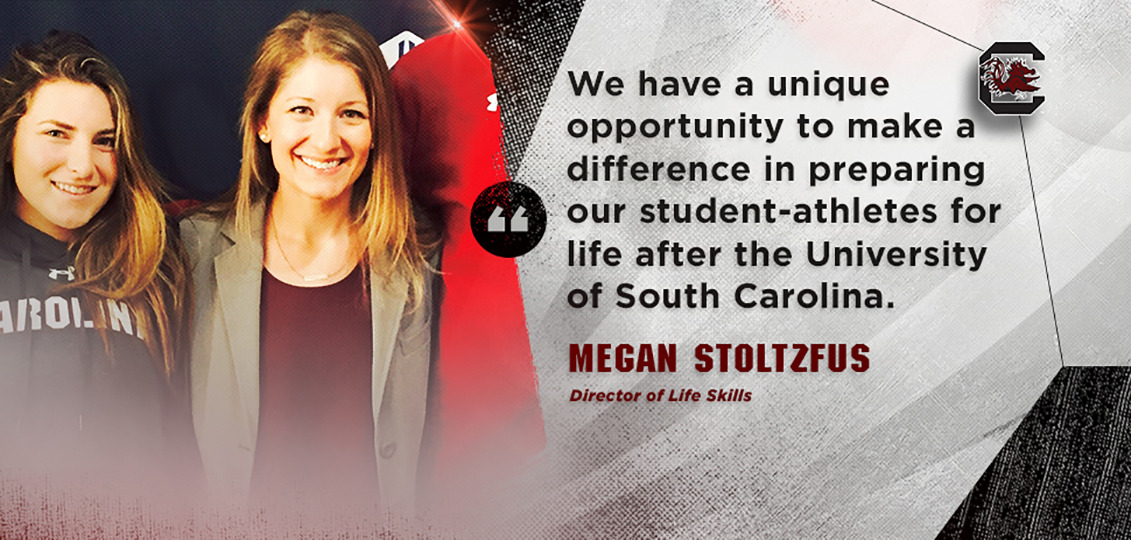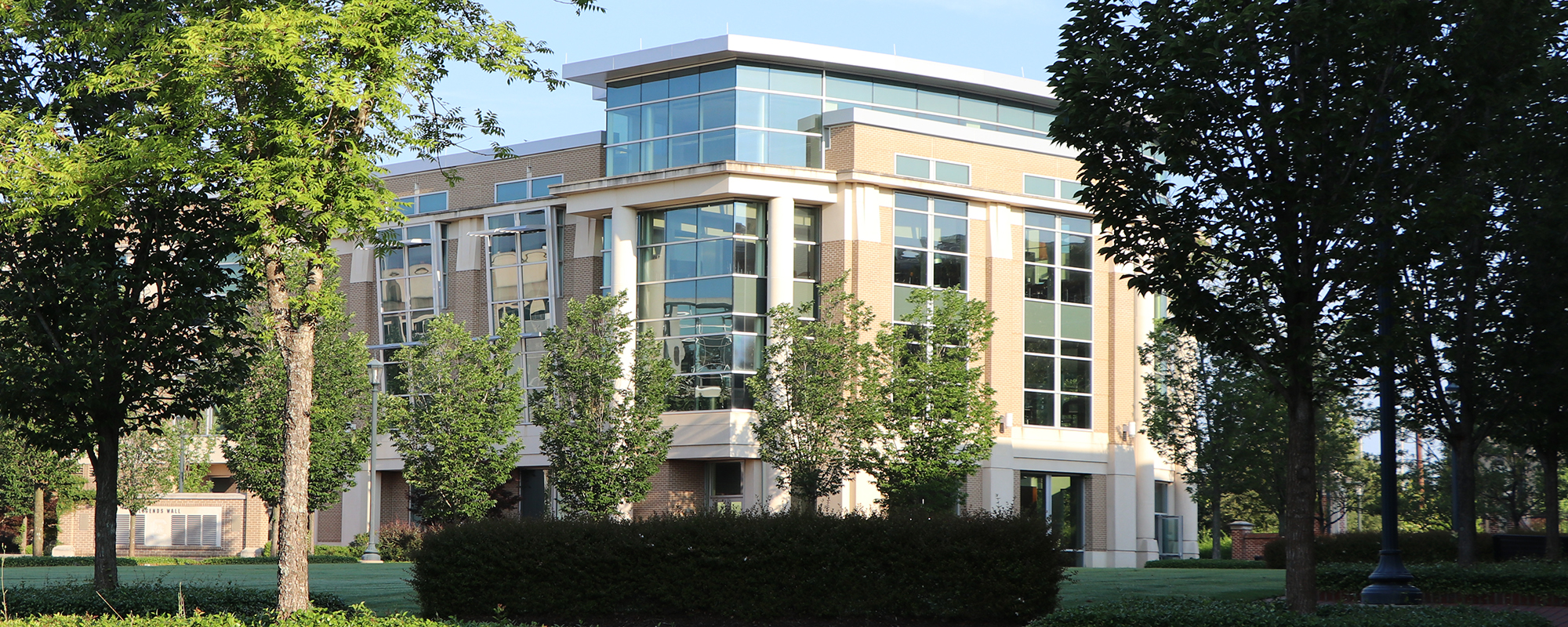
Stoltzfus Helps Prepare Gamecocks for Life After Sports
Nov. 28, 2017

Megan Stoltzfus is excited to help South Carolina student-athletes win when their playing days are over. Stoltzfus is the new Director of Life Skills for South Carolina Athletics and looks forward to not only continuing the great work the office has done in the past, but also helping it move forward with changing times.
“Community service will always remain at the forefront of what we do, and it’s engrained into the culture here,” Stoltzfus said. “The student-athletes are so passionate about that. We’re also going to try to enhance career development and professional development for our student-athletes. In conjunction with the Beyond Sports [Professional Development and Summer Internship] Program that was implemented last year, we have a unique opportunity to make a difference in preparing our student-athletes for life after the University of South Carolina.
“What I love about what’s been implemented so far in the Beyond Sports Program, is that it’s not just an internship program. There’s a professional development component to it. We’re making sure that student-athletes are educated on a weekly basis as to what resources they have on campus and things they should be thinking about for their career.”
Originally from Ohio, Stoltzfus graduated from Ohio State in 2008 and began a career in sports marketing. She worked for the Miami Dolphins for a little over a year and eventually found her true passion.
“Marketing gave me the chance to really learn all aspects of working in sports because you tend to touch and be involved with everything,” Stoltzfus said. “You’re involved with season ticket holders, sponsors, and events. That’s what led me to having an interest and a passion for the community service side.
“I just realized that a value I wanted out of my career was something where I felt more like I was giving back and making a difference.”
That led her to going back to school to earn a Master’s degree in higher education, which she did at the University of Florida. After gaining experience as a Life Skills intern and in the Career Center at Florida, Stoltzfus soon recognized that there would be a shift in the world of life skills development as it pertained to student-athletes and heeded a mentor’s advice to learn more about career development for them.
“I wanted to help guide students through that career development process and give them life-long skills that would really help them in whatever they wanted to do,” Stoltzfus said. “While community service is always going to be a big part of what we do in life skills and academic services for student-athletes, career and professional development is becoming that much more important.”
It’s all about arming student-athletes with the right skills as early as possible so they’re not scrambling when they’re seniors.
Megan Stoltzfus
Stoltzfus worked for two years at South Carolina in the Career Center from 2012 through 2014 before accepting a similar position at Texas A&M. In 2016, she was promoted to Associate Director of Employer Services in the Career Center there. Her husband, Paul, was later hired at South Carolina as the Executive Director of Academics, and when the Life Skills position opened with the Gamecocks, Stoltzfus jumped at the chance to return to work on the Columbia campus.

“It felt like coming home,” Stoltzfus said. “It’s a special place, and it’s very near and dear to our hearts. It’s funny how fate kind of steps in. This is my dream job. When I went to graduate school, my goal was to obtain this role. This is what I am so passionate about.”
In addition to the standard events that student-athletes participate in each year, such as the student-athlete orientation for freshmen, the etiquette dinner, professional dress seminar, and the networking seminar; there will be more education throughout their four years about preparing for life after sports.
“It will start in their freshman year in letting them know the types of things they need to be doing so that they can be just as competitive out in the world as they are when they’re here playing sports,” Stoltzfus said. “When I think about career development and what all students need to learn in their four years here, it’s lifelong skills.
“It’s not just about being able to cold-call someone. These days, it’s more about teaching how to actually talk to someone. How do I ensure that I make good eye contact? Those things need to be practiced.”
Such skills are important as both young employees and employers are changing the ways careers are managed.
“This generation jumps around a lot early in their careers,” Stoltzfus said. “We have a lot of employers that are moving to a format where they have two-year contracts, and in places such as consulting firms, if you leave before that two years, you have to pay back your signing bonus.”
Stoltzfus noted that some of the biggest challenges for student-athletes in making the transition to the workforce involve experience and confidence.
“Being a student-athlete at a large Division I school doesn’t mean they are confident in those skills,” Stoltzfus said. “If they’re practicing all the time and doing the things they need to do to be successful in their sport, they may not have had time to do a lot of internships and get those professional experiences because they are student-athletes. If you realize the top skills that employers are looking for are all inherent to what a student-athlete does, you can give them confidence.
“They have time management skills, they have the work ethic, and they have that competitive side. So, while a regular student may have an internship, a student-athletes does have those other skills that all employers are looking for. They may not think they have experience, but they actually do. Taking a full load of classes and doing all the things they have to do for athletics is like having a job. We just have to arm them with confidence and be able to adequately explain their experience with employers.”
Stoltzfus noted the importance of looking strategically at what’s being done across the country, not just in other athletics departments, but in other career centers.
“We need to educate students sooner in some of these skills,” Stoltzfus said. “It’s like a muscle that needs to be exercised before you really need it. We want them to utilize the resources they already have here to make connections. It’s all about arming student-athletes with the right skills as early as possible so they’re not scrambling when they’re seniors.”












